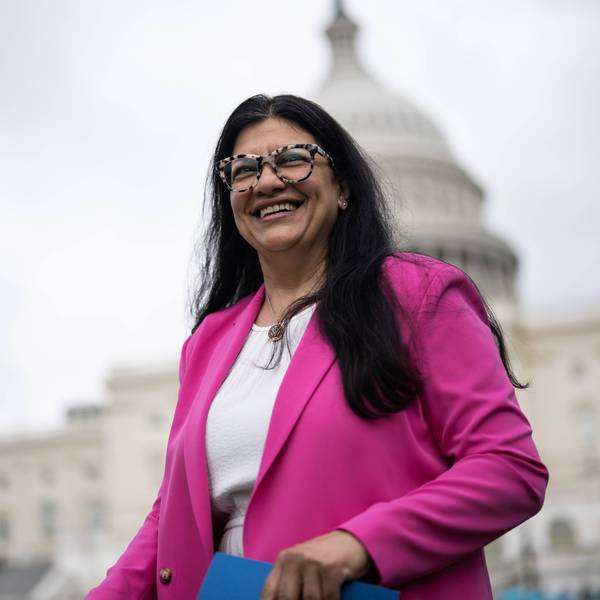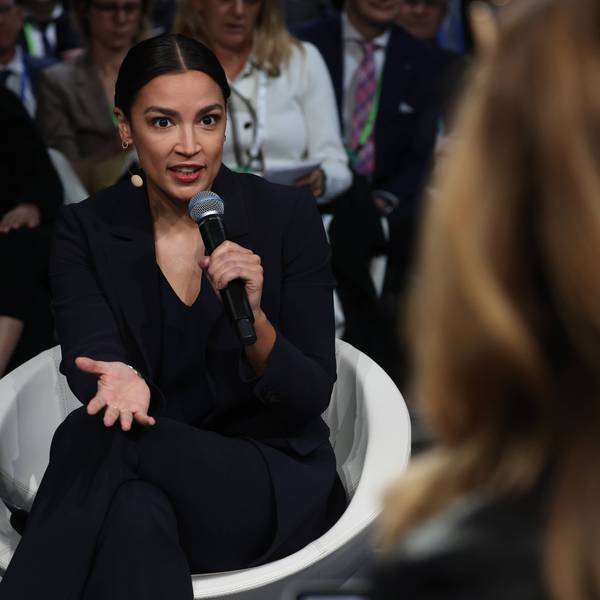In moves celebrated by progressives as further evidence that grassroots pressure on the Democratic Party to ditch corporate cash is having an impact, two senators--Kirsten Gillibrand (D-N.Y.) and Cory Booker (D-N.J.)--pledged on Tuesday to no longer accept corporate PAC donations.
"Our movement has shown that you can't expect to be a leader of the Democratic Party if you're going to keep taking money from Wall Street banks and large corporations."
--Justice Democrats
In making this pledge, Gillibrand and Booker joined a small group of their Senate colleagues--Sens. Elizabeth Warren (D-Mass.), Maria Cantwell (D-Was.), and Bernie Sanders (I-Vt.)--who have already sworn off corporate PAC money.
"I will no longer accept donations from corporate PACs," Gillibrand announced in a video posted on Twitter Tuesday. "We really need to make every effort we can to get rid of the corporate money and dark money that is flowing into politics, and my effort to ban corporate PAC checks is just a first step in that direction."
Booker also made his announcement through Twitter, writing that decision was a result of discussions with constituents.
Responding to the senators' announcements on Tuesday, the progressive group Justice Democrats attributed the growing trend of candidates and incumbents refusing corporate cash to the burgeoning grassroots desire for a campaign finance system that elevates the voice of the public, not massive corporations.
"Our movement has shown that you can't expect to be a leader of the Democratic Party if you're going to keep taking money from Wall Street banks and large corporations," Justice Democrats wrote on Twitter, tagging other senators who have not yet vowed to reject corporate money. "This is a sign that we are transforming the Democratic Party. Keep pushing. Don't stop."
As the campaign finance reform group End Citizens United (ECU) observed in a statement on Tuesday, Booker and Gillibrand are part of a "growing trend of candidates across the country who are pledging to refuse corporate PAC money," including Rep. Beto O'Rourke (D-Texas), who is vying to unseat Sen. Ted Cruz (R-Texas) in 2018, and Randy Bryce, who is challenging House Speaker Paul Ryan (R-Wis.).
"Americans' faith in the government is at an all-time low, with more than 90 percent believing the government is working for the benefit of a few special interests," ECU noted. "A robust reform agenda would help end the outsized influence special interests has on our politicians and helps build trust with constituents. ECU has found that 62 percent of Americans believe that a candidate who refuses to accept corporate PAC money is a sign that the candidate is serious about reform."




